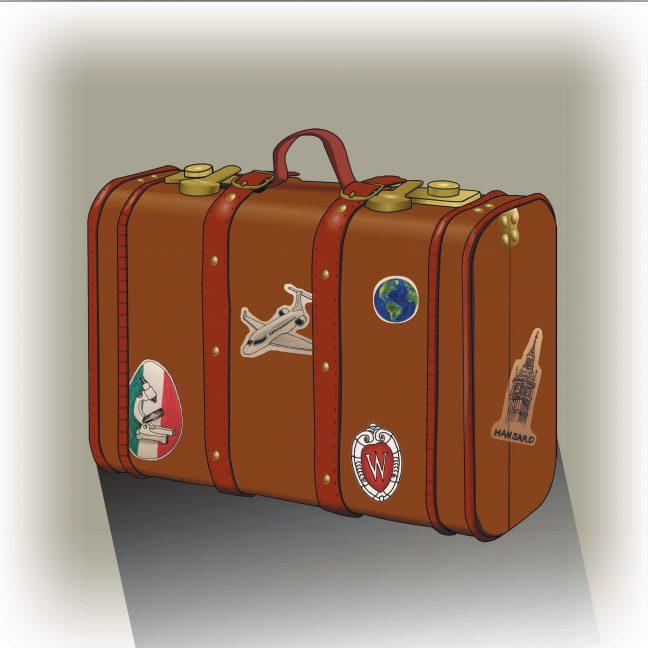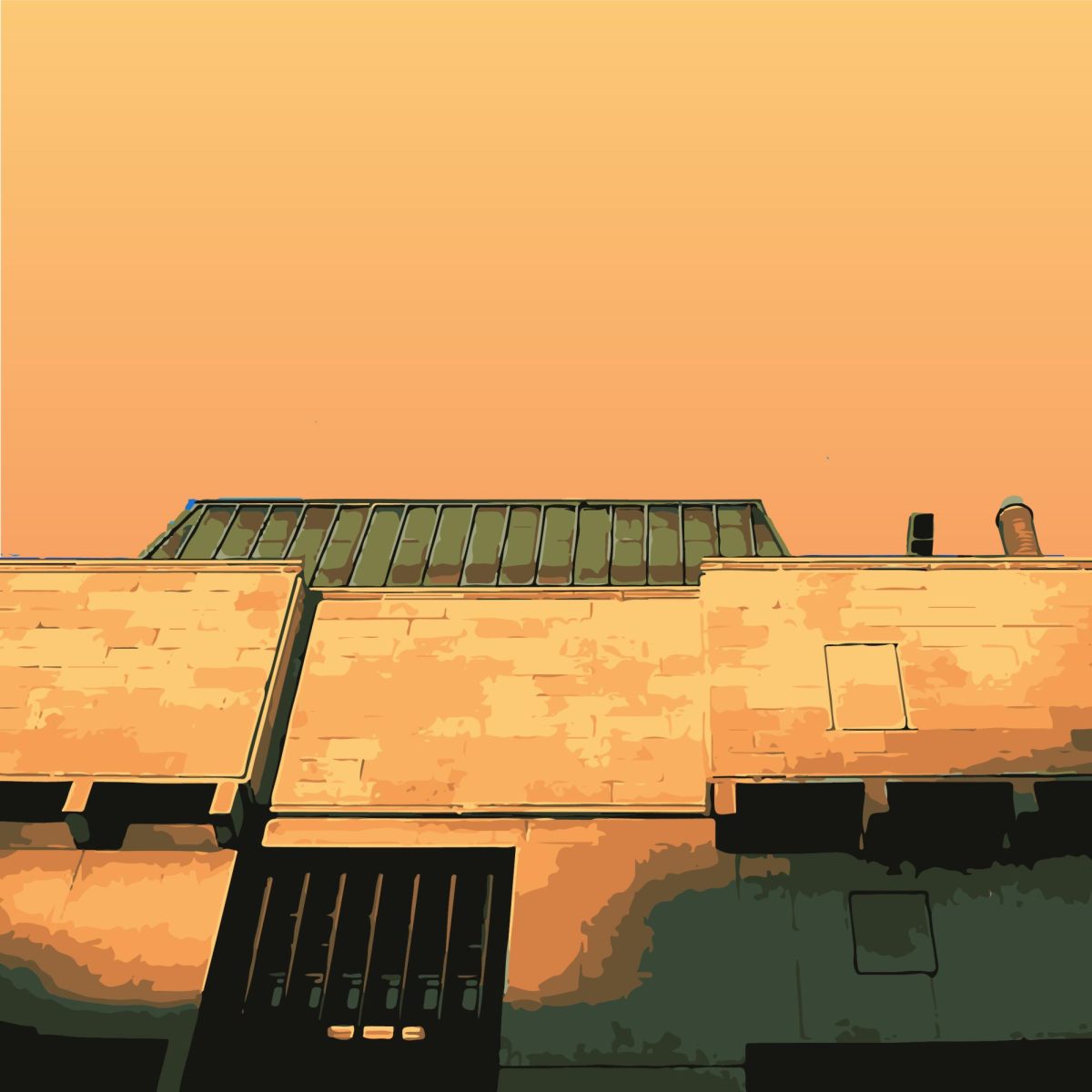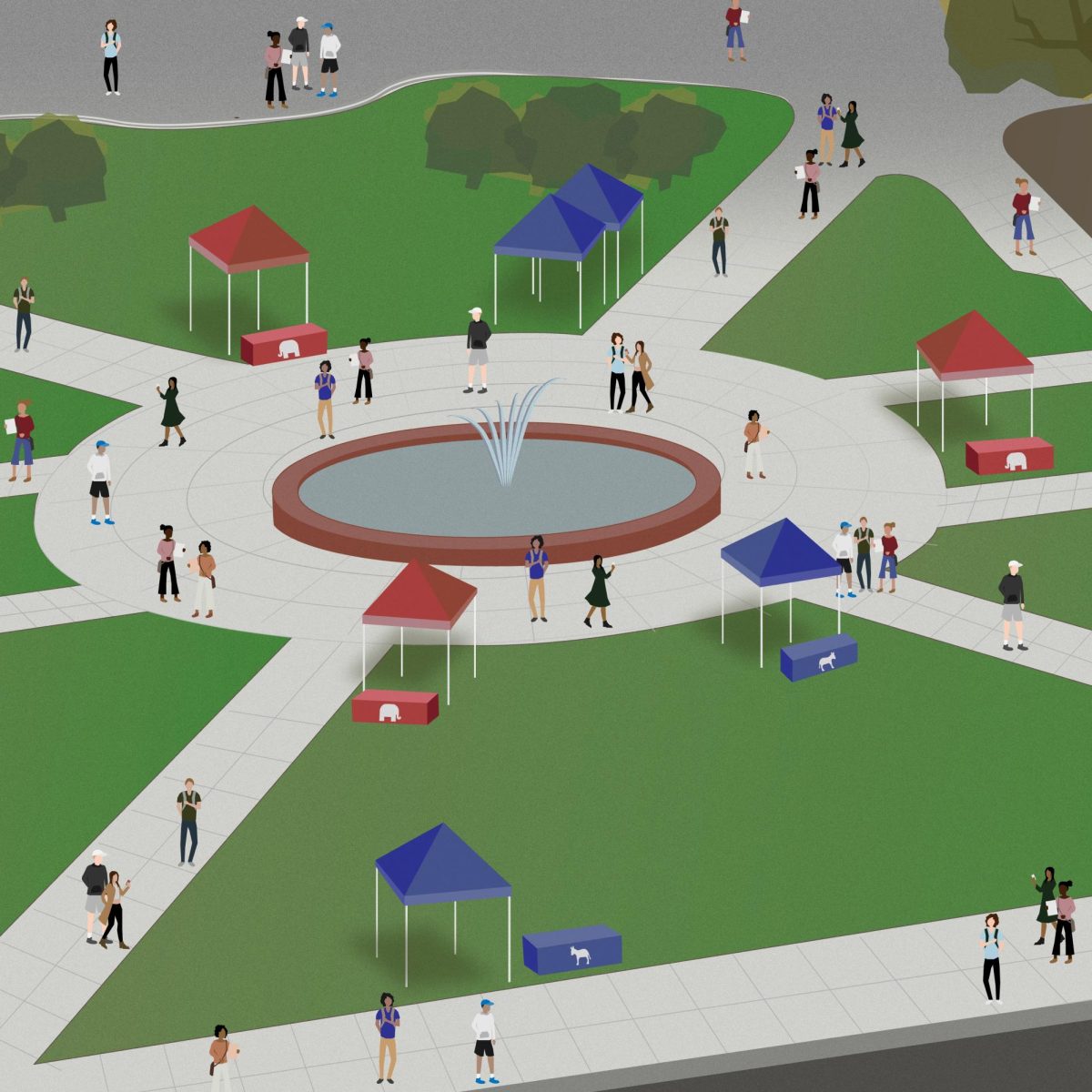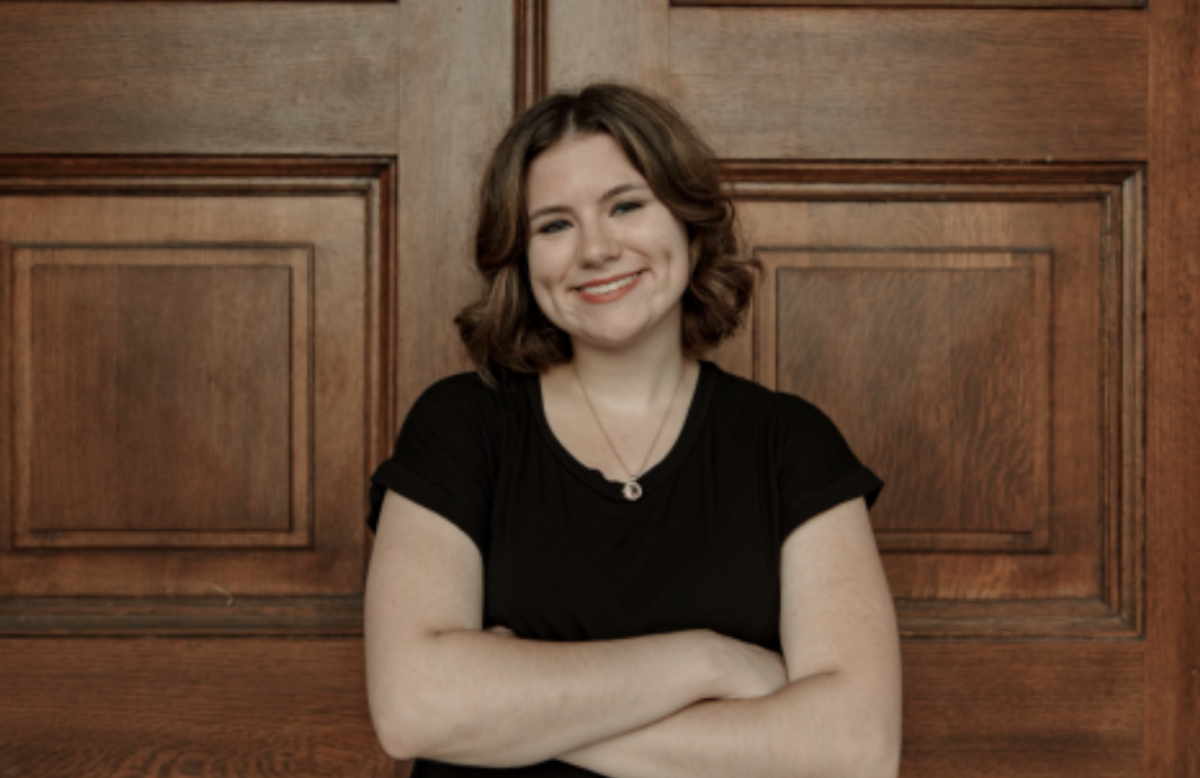Angela Serrano began her research in Colombia with a preconceived idea of the palm oil industry. She thought her dissertation findings would solidify her belief that the booming oil-seed production had serious social and ecological impacts. But to her surprise, the story she discovered was far more nuanced.
Serrano, a PhD candidate studying sociology at the University of Wisconsin, is a native Colombian. Growing up in the countryside, she was privy to the inequalities experienced by local farmers. The palm oil industry, she explained, is synonymous with the maltreatment of workers. Modern forms of slavery and economic disparities plague the industry’s reputation.
Part of her research, Serrano said, is interviewing local farmers. Serrano said some small scale farmers described only having enough money to eat plantains and yuca. The roads, they said, were in terrible condition and armed conflict regularly broke out. Palm oil farmers for large suppliers shared similarly disheartening stories — some lost their crop to pests and went into debt, losing their pensions and the ability to provide for their families. Serrano believes sociology is the tool necessary to understand and dissolve these disparities.
Serrano’s research has not been completed without the guidance and feedback of UW faculty. With a similar research focus in palm oil, UW Assistant Professor of History and Environmental Studies Elizabeth Hennessy serves on Serrano’s dissertation committee.
“I have had the opportunity to learn from and collaborate with many amazing colleagues and professors,” Serrano said in an email to The Badger Herald. “In particular, I’ve enjoyed having the opportunity to be surrounded by people that share my interests in tackling social inequality through building fairer food systems. In that sense, it’s been crucial to be part of communities that go beyond disciplinary boundaries and care about other people’s quality of life and work.”
While her interest is in the palm oil industry in Ecuador, Serrano said Hennessy has been incredibly helpful in her academic and professional development. And the same can be said about the many research professors at UW who value the growth of the students they teach as much as they do their own research. According to the UW research website, UW ranks sixth in the nation among universities for volume of research, spending $1.2 billion annually on research initiatives alone.
Science politicization, funding fights leave researchers in limbo
Furthermore, seventeen cross-campus research and service centers house faculty, staff and students from areas spanning the natural and social sciences, arts and humanities. But the relationships built and discoveries made with students and the UW community is what gives meaning to the work.
Though the 2018-2019 school year has ended, countless UW professors still continue their research into the warmer months. Many of them often open their doors to students who are interested in topics such as northern muriqui monkeys, palm oil production in Ecuador or the urbanization of red foxes in the Madison area, to name a few.
While the research conducted by UW professors vary greatly, the value of relationships with students and the community is recognized by all. Six professors with different areas of expertise and levels of engagement with student researchers stress the importance of excellent teaching and research as well as building meaningful relationships with UW students.
Case Study: The Environment
Elizabeth Hennessy
Motivated by the troubling environmental news of today, Elizabeth Hennessy is currently devoting her time to researching the palm oil industry in the world’s sixth largest palm oil producing country: Ecuador.
According to her website and research proposal, the production of palm oil has grown exponentially over the past 40 years, but at a serious cost: modern forms of slavery and deforestation have tainted the industry. To better understand this dynamic the assistant professor of history and environmental studies is concentrated on two palm-oil-producing regions.
Though she does not employ large groups of students to aid in her research, Hennessy is still committed to the professional growth and development of the students, like Serrano, whom she teaches.
Undergraduate Research Symposium offers chance for student researchers to learn, share discoveries
Hennessy’s research is interdisciplinary in nature as it covers a breadth of research area: social, environmental, economic, etc. This freedom to explore the various subjects pertaining to her research is encouraged of not only her but all UW researchers, Hennessy explained.
“[UW] is a really collaborative university. Interdisciplinary studies are really important, and people really do that here,” Hennessy said.
Leah Horowitz
As an assistant professor in the Nelson Institute for Environmental Studies and Department of Civil Society and Community Studies, Leah Horowitz tries to instill the importance of protecting the environment in all of her students.
“The environment is something I feel very passionately about,” Horowitz said. “I hope to provide my students with a background to allow them to make informed decisions in their lives and careers that favor the environment and factor it into their decision-making processes.”
Such passion is what fuels her current project. An examination of indiginous communities in North and South Dakota, Horowitz is focused on the tribes’ concerns about drinking water supplies and sacred places due to oil pipelines that pass beneath traditional lands. This research, in conjunction with excellent teaching, earned her the 2019 Vilas Early Career Investigator Award.
Horowitz said she is specifically interested in governmental processes and ways the Army Corps of Engineers failed to consult tribes on the pipeline project. Her data collection is qualitative — she conducts interviews and observes participants, Horowitz explained.
Horowitz often works collaboratively with graduate students from UW. Currently, she has graduate students researching two pipelines in Minnesota with the hopes of doing a comparative analysis when they complete their findings.
“It’s great being a part of the Nelson Institute,” Horowitz said. “There is a strong commitment to the Wisconsin Idea and to communities.”
Case Study: Animals
Karen Strier
Professor of Anthropology Karen Strier turned what was her graduate school dissertation into what is now her life’s work. She began studying wild monkeys, specifically the northern muriqui monkey at Harvard University before coming to UW in 1989.
“I thought it would last a year, but I fell in love,” Strier explained.
After more than 36 years of research on the “behavioral ecology, life history and population dynamics” of what is deemed one of the most peaceful species of primates, Strier is confident that what’s been learned about muriqui monkeys and the work done in the Strier Lab is not only important theoretically, but also highly beneficial at an applied level.
Everything learned by studying these monkeys in the least invasive way possible can be used to conserve these highly endangered primates and their habitats, Strier said.
Survey ranks UW sixth in research expenditures, retains 2016 rank
Strier directs the Muriqui Project of Caratinga, which is one of the longest running field studies on any wild primate. Since its inception, the muriqui population has significantly increased in size.
The project, Strier explained, has a long-standing tradition of training Brazilian students. According to the website, more than 60 students and postdocs have participated in the project since 1963.
“I’m fortunate to have the opportunity to study these animals,” Strier said. “Part of my paying it back is helping train Brazilian students.”
But Strier’s focus on teaching and giving back is not only geared towards her Brazilian students. She provides as many volunteer opportunities in her lab as possible to students at UW. To Strier, who has taught anthropology and zoology to UW undergraduates for years, even students who have no experience in those subject areas can stimulate the work environment and help create a synergy in the classroom, Strier said.
“I wanted to be at a major research university that also values teaching,” Strier said. “UW fits my vision as a professor. It’s a university that recognizes people like myself who are at the forefront of their fields but also recognizes the importance of teaching.”
David Drake
Forest and Wildlife Ecology Professor David Drake seeks help from between one and four students during the school year and into the summer. He even goes as far as engaging members of the community in his research.
Drake’s Urban Canid Project began as a pilot study in 2014 after coyotes and red foxes were seen making their home on the UW campus. With the help of a graduate student he trapped and radio-collared two foxes and two coyotes to better understand how urbanization impacts the animals and their relationships with humans, according to the website.
“We want to see how [coyotes and red foxes] interact in urban landscapes and with each other,” Drake said. “We found that here in the city that the red fox and coyote can coexist, which is really a unique relationship.”
Drake involves students in his research as much as possible. Undergraduate involvement, specifically, can take many forms, Drake said. Individual research projects, volunteer work, working as a field technician or as an intern are some of the opportunities Drake offers students.
Four UW faculty receive 2019 Hilldale Awards to honor research, service
One of those students is Sepp Swanson, an environmental studies major going into his junior year. After no luck applying to lab positions as a freshman, Swanson decided to email Drake when a biology course he was in required he do research with a UW professor.
Soon enough Swanson was sitting down with Drake for what he thought would be a formal interview, but instead Drake simply explained his research and told Swanson there was room for him in the lab if he was interested. Swanson spent the past spring semester in Drake’s lab doing geospatial analysis with ArcGIS, a mapping technology, to determine species diversity of animals at different locations around Madison — a project unrelated to the Urban Canid Project — and has since continued his work into this summer.
Drake also engages members of the Madison community in his research. In fact, it’s the continued interest of the community that allows the Urban Canid Project to continue and be as successful as it is today.
This balance between research, teaching and outreach is what excited Drake about UW, where he has been for 14 years. As an assistant professor at Rutgers University, the reputation of the UW Department of Wildlife and Forest Ecology was appealing, as well as the opportunity to “work among the best.”
During the fall Drake said he and his team invite the public to join them trapping. By doing so, he said, the public develops a completely different perspective on the wild animals.
“They get to experience a pretty intimate setting, and a unique, personal view of the animals,” Drake said. “We’ve had people as young as five and as old as 82 come trapping. It’s been a pretty rewarding interaction.”
Case Study: Humanities
Susan Ridgely
“My interest has always been in why people choose what they do … why they make different choices than I would,” Susan Ridgely said of her inspiration to study and teach religious studies.
Beginning her fourth year at UW, Ridgely is researching the ethnographic oral history of the first Catholic church to be desegregated. Her focus, she explained, is on tracing the history of the rural parish post-civil war to this current moment in time.
In wake of cuts to federal research funding, UW develops new research submission tool
Our Lady of Guadalupe Catholic Church in Newton, North Carolina did not always have a predominantly Latino congregation. In fact, the church has a rather unique history, Ridgely said. Since its consecration in 1874, the church has seen its share of interracial struggles and changes in governing structure, but is using its history as a way to inform integration, Ridgely said.
“We don’t look at rural religion very often like we do suburban and inner city religions,” Ridgely said. “What’s interesting is this church is really getting a do-over. Though it took a couple tries, you can see it has changed … it’s a rare opportunity to see almost 75 years of wrestling with desegregation.”
This project had been in the back of Ridgely’s mind for awhile — she wanted to start on it in 1998 but was turned away because of the church’s leadership at the time. Since then, Ridgely said, attitudes in the church have changed. The people she’s interviewed no longer fear an exposé, instead they want the history of their church to be recorded and heard.
“What they may have been embarrassed by before are just facts,” Ridgely said. “With age and time, people aren’t worried about repercussions at age 92. Some of the tension in the community has dissipated, and the church is desperately looking to reconnect with people from the past.”
Currently, Ridgely does not have many students working with her on the project, but the caliber of student researchers at UW and the enthusiasm to build student relationships does not escape her, Ridgely said.
And neither does the significance of being a UW faculty member.
“It carries a lot of weight saying I’m from UW-Madison,” Ridgely said.
Anatoly Detwyler
Of these six professors, Anatoly Detwyler is the newest faculty member with only one year under his belt at UW. But so far, Detwyler said, he’s not been disappointed.
“I had the opportunity to join a dynamic department doing cutting edge research and I have enormously benefited from my first year at UW,” Detwyler said.
Detwyler is an assistant professor of modern Chinese literature. Though originally from Wisconsin, he attended the University of Minnesota where he worked hands-on with world-class scholars whom inspired him to pay his experience forward at UW.
His current project is a book detailing the early information age in China during the first half of the 20th century that he hopes will explain how humans got to where they are today. The book will explore how authors, writers and critics respond to new information technology and data.
“The book is not just a cabinet of curiosities,” Detwyler said. “Earlier experiences of information resemble ours in interesting ways.”
Detwyler said he is also pursuing work in digital humanities that uses qualitative techniques to study Chinese cultures. To do so, Detwyler said, he is working with colleagues at UW to facilitate new collaborations with partner institutions in China, specifically Tsinghua University and the Chinese Academy of Social Sciences.
Twenty years of stem cell research at UW highlights new opportunities, challenges
The goal of such collaborations is for UW faculty to be able to work with counterparts and share data and methods that will further new projects.
Much of the research materials he uses are located in mainland Chinese, Taiwanese, Hong Kong and Japanese libraries and archives, Detwyler said. The nature of such research doesn’t contribute to a lab culture, but within the next couple of years he hopes to engage some undergraduate collaborators.
“I am so impressed by the quality of our students,” Detwyler said. “They all bring really key perspectives. This is really a place where there are really exciting conversations happening in every hallway.”
Connecting: Human Relationships Stand Out
The research done at UW does more than help create bonds between students and faculty — it builds better relationships between the worldwide community and the university.
While in Colombia Serrano interviewed a farmer. He had 15 acres of land but could not grow enough palm oil to support his family. He did all kinds of work — even harvesting coca, the plant from which cocaine is made. He knew it was dangerous, but he wanted to provide for his family and eventually return to his palms, Serrano explained.
This kind of story was not uncommon of workers in the industry. But what he told her next came as a surprise.
A non-governmental organization looking to help struggling farmers came to his area. By providing him and other farmers with the resources they needed, viable economic activity was created. The farmers, Serrano said, have appropriated the palm oil production and changed the histories of their families.
“I came into it very cynical, but the story of oil palm is not a single entity,” Serrano said. “This has shown me that there are different contexts and lots of contrasting stories.”
Her UW experience, Serrano said in her email, has challenged and rewarded her. She’s had the opportunity to learn from and collaborate with colleagues and professors, and to fund her research through help from organizations including the Latin American, Caribbean & Iberian Studies Program, Include, Respect, I Self-Direct, the Holz Center and many others.
Serrano is grateful to be part of the Department of Community and Environmental Sociology, the Department of Sociology, the Center for Culture, History and the Environment and the Teaching Assistant’s Association, as well as the connections she has developed because of these departments.
“Through the connections that these departments and centers forge, I’ve been able to build strong relationships with people across campus,” Serrano said in her email. “Overall, being at UW-Madison has prepared me to conduct research on the issues I care about and find the support I need whenever I’m confronting a new challenge.”








